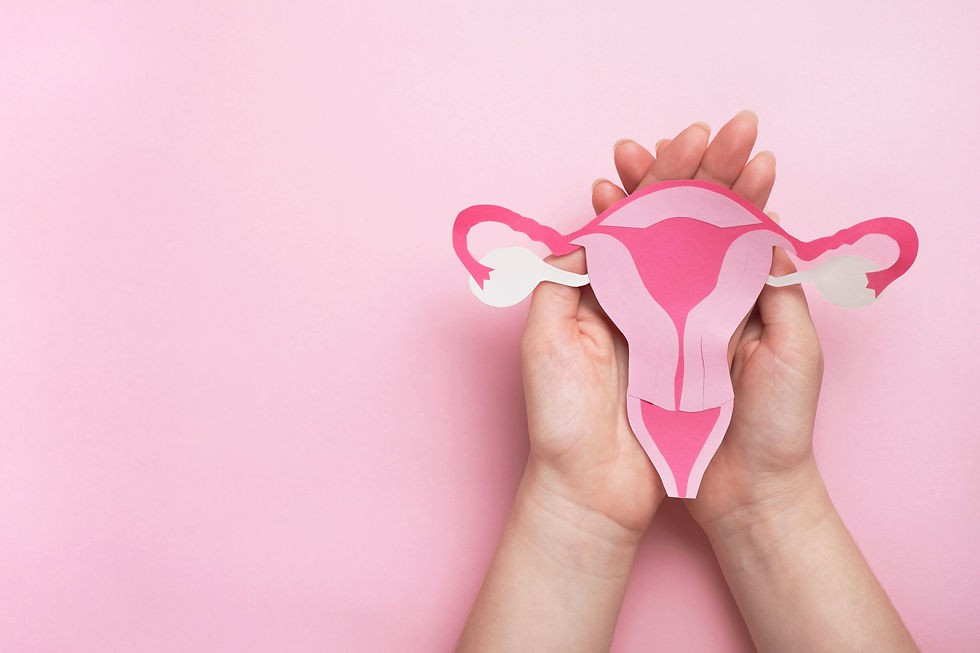Menopause: how to recognise the first symptoms?
- Advent Life

- Jan 13, 2023
- 3 min read
Updated: Mar 27, 2023
Are you experiencing hot flashes, insomnia, and vaginal dryness? The combination of these and other symptoms may mean that you are going through a completely natural process called menopause.
With the MENO-Check® test, you can easily and quickly find out at home whether you are in menopause.

What is menopause?
Menopause occurs when the hormonal function of the ovaries begins to decline and the woman stops menstruating. This gradual process consists of three stages.
1. Perimenopause Usually, this first stage begins in women between the ages of 45 and 55 and, depending on various factors, can last between 7 and 14 years. This is when the levels of estrogen and progesterone – the hormones produced by the ovaries – begin to fluctuate. During this stage, women still have a menstrual cycle and can get pregnant.
2. Menopause Actual menopause occurs 12 months after a woman’s last menstrual period. At this point, the ovaries are no longer releasing eggs and estrogen levels are permanently low.
3. Postmenopause After the onset of menopause, women enter the postmenopausal stage. Due to decreased estrogen levels, postmenopausal women are at a higher risk of osteoporosis and cardiovascular disease.
What are the symptoms?
Estrogen affects many processes in the female body. Therefore, when estrogen levels start to drop, various symptoms can appear. During menopause, the body begins to use energy differently, fat cells change, and it may become easier to gain weight.
The signs of menopause are individual and can vary among women.
Changes in the menstrual cycle
This is one of the first signs women notice. Menstrual cycles become irregular, they may change in length, or become stronger or weaker than usual.
Hot flashes
A sudden sensation of heat in the upper body and especially on the face and neck is the symptom most often associated with the onset of menopause. Hot flashes usually last between 30 seconds and 10 minutes and may be followed by heavy sweating or chills. They might also bring discomfort during sleep.
Sleep problems
Difficulty falling asleep at night, waking up at night, and insomnia – these sleep disturbances are common during menopause. Hot flashes at night can also significantly reduce the quality of sleep.
Frequent urination
Women may start to experience a more frequent need to urinate or to urinate involuntarily (urinary incontinence) – for example, during exercise, laughing or sneezing. This is because during menopause the vaginal tissue loses its elasticity and the pelvic floor weakens. The risk of urinary tract infections also increases.
Vaginal health and changes in the libido
During menopause women sometimes experience vaginal dryness, which may cause pain or discomfort during intercourse. The drop in estrogen may also lead to a decreased sex drive. On the other hand, the freedom that comes from no longer having a menstrual cycle and being unable to conceive can have a positive effect on the libido of some women.
Mood changes
Irritability, depression, and other sudden mood changes are a completely normal consequence of menopause. Sometimes these emotions can be intensified by outside factors from everyday life such as stress and fatigue.
During this period of a woman’s life, the body changes in other ways as well. Muscles get weaker, the skin becomes thinner, hair loss occurs. Women may experience memory difficulties as well as joint pain.
All these processes are a natural part of menopause but they can be alleviated by making some simple changes in your daily life. Experts recommend a varied diet, regular physical activity, and eliminating stress whenever possible. In case of poor sleep, try to reduce your intake of caffeine and alcohol and refrain from smoking. If you are suffering from anxiety or other sudden mood changes, do not hesitate to seek professional support.
Do you want to check if you are in the process of menopause from the comfort of your home? Test yourself with MENO-Check® for a quick and reliable result.


Comments